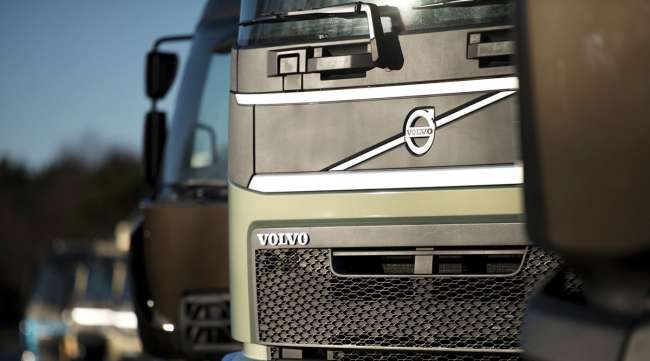Volvo Trucks to Take $780 Million Charge Over Emissions Flaw

Volvo AB, the world’s second-largest truck maker, will set aside $780 million (7 billion kronor) to address a faulty emissions-control component that’s worn out more quickly than expected.
The charge will eat into operating income in the just-finished fourth quarter, while the drag on cash flow will impact the coming years, the Gothenburg, Sweden-based manufacturer said Jan. 3 in a statement issued after trading closed in Stockholm. Citigroup said the size of the provision was “better than feared,” and Volvo shares gained as much as 2.3%.
The expected cost is made up of several factors, including testing of vehicles, statistical analysis and discussions with authorities, Volvo said. The company will “continuously assess the size of the provision as the matter develops.”
Volvo fell the most in six months on Oct. 16 after disclosing that issues with the part, which comes from an outside supplier, “could be material.” The company has said that a component in trucks widely sold in Europe and the U.S. was degrading faster than expected, potentially leading to the release of emissions exceeding limits.
The cost of addressing the component issue is “uncomfortable but affordable” according to Jefferies analysts including Graham Phillips, who still expects Volvo to pay shareholders an extra dividend, after a year in which the truckmaker has seen orders surge and profits reach record levels.

The revelation by Volvo has come against a backdrop of Volkswagen AG’s emissions scandal that erupted in 2015, when the carmaker was caught using software to circumvent pollution controls. Truckmakers such as Volvo have so far escaped scrutiny.
The company is still considering how to address the problem, and is working with authorities to come up with a solution, it said Jan. 3. The U.S. Environmental Protection Agency said in October it was in talks with Volvo over the matter.
U.S. diesel-engine maker Cummins Inc. said in July that it would pay $404 million through 2020 for repairs to ensure its engines keep pollution below legal limits as they age. EPA and the California Air Resources Board had found previously that some older Cummins engines failed emissions tests as parts wore out.
Johnson Matthey PLC, which supplies coated substrate for emissions-treatment systems, said in November last year that two customers had informed it about failures in engines that use its product. The U.K. company has defensible warranty positions and would “vigorously assert its available contractual protections and defenses,” it added. Shares in the London-based company rose as much as 2% on Jan. 4.




